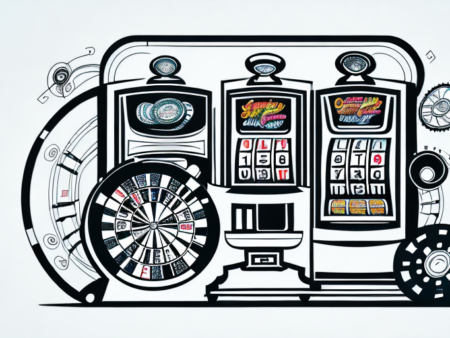Standard online gambling options include lotteries, table games, video poker, online casino games, and sports betting.
Can you gamble online in America?
Introduction
Online gambling refers to indulging in an activity on the internet whose result is uncertain with the consciousness of risk and an aim of gaining. The gambling outcomes may be determined by chance alone, physical training or skill in athletic contests, or a combination of strategy and luck. Online betting has become very popular over the last decade owing to the fast-growing internet connectivity worldwide. Standard online gambling options include lotteries, table games, video poker, online casino games, and sports betting.
History of Gambling in America
Gambling is a matter of contention; some people perceive it as a hobby or an entertaining activity, while others regard it as a menace to the social and economic well-being of a person and a society. Given that the various online gambling options are easily accessed even on smartphones through dedicated apps and played anywhere and at any time, most authorities deem it necessary to have regulations that govern gambling. In America, the Wire Act of 1961 enabled states to enforce their gaming laws and prohibit certain types of betting. The Act criminalized the use of interstate telephone lines for gambling businesses in an effort by the federal government to suppress organized criminal activities. This was before the internet existed. However, the scope of the Wire Act has been a major cause of dispute between lawmakers and federal agencies.
Online Gambling in America
In 2011, the Department of Justice (DOJ) declared that the Wire Act applied only to sports-related gambling. This announcement opened the door for various states to legalize intrastate non-sport online gambling like the sale of lottery tickets and internet poker; the top of the list being Nevada, New Jersey, and Delaware, which legalized and regulated online betting within their borders. In 2018, the Department of Justice reversed its interpretation of the Wire Act. It concluded that the Act implicated all forms of internet gambling and is not only limited to sports betting. This move surprised the entire gaming industry, which had expanded rapidly across the nation. The DOJ acknowledged that its change in position would disrupt several businesses, and a 90-day grace period was allowed for entities to comply.
After the DOJ’s new opinion, many lawsuits were filed challenging the opinion led by the New Hampshire Lottery Commission (NHLC). The summary judgment was in favor of NHLC. The court set aside the 2018 opinion as a matter of the law.
States where online gambling is legal in America
Several states allow online gambling in America, and each state regulates it differently. The state legislators have categorized online gambling into virtual online casinos, online sports betting, and online poker. About twenty states allow online sports betting for residents, making it the most accessible form of online gambling in America. States that have made significant advances in internet wagering in America include New Jersey-the first state to allow online casinos, Pennsylvania, where online poker is prevalent, Michigan-The Lawful Internet Gaming Act was signed in 2019, Delaware, Nevada, and West Virginia. Since each state has its laws and some form of restriction regarding gambling, players need to be aware of the state laws regarding online gambling before indulging in it.












